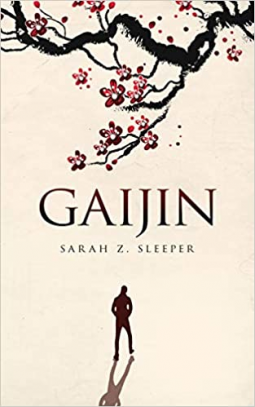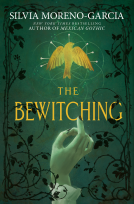
Gaijin
by Sarah Z Sleeper
This title was previously available on NetGalley and is now archived.
Send NetGalley books directly to your Kindle or Kindle app
1
To read on a Kindle or Kindle app, please add kindle@netgalley.com as an approved email address to receive files in your Amazon account. Click here for step-by-step instructions.
2
Also find your Kindle email address within your Amazon account, and enter it here.
Pub Date Aug 01 2020 | Archive Date Aug 24 2020
Talking about this book? Use #Gaijin #NetGalley. More hashtag tips!
Description
The Japanese word gaijin means "unwelcome foreigner." It's not profanity, but is sometimes a slur directed at non-Japanese people in Japan. My novel is called Gaijin... ======
Advance Praise
"Against a backdrop of tea ceremonies, lotus blossoms, haikus, and the gritty reality of the difficult history of American and Japanese relationships, Sarah Sleeper weaves her deftly told story of a young woman’s memorable journey toward a greater understanding of the truths that inhabit our complex world. Written with a journalist’s eye for detail and a commitment to the truth, Gaijin is an expansive, meaningful debut.”
-Karen Osborn, author of The Music Book
"A nuanced, subtly written tale that reminds one of those Jamesian cultural clashes between ingenuous Americans and sophisticated foreigners, Sleeper’s novel shows us how we are all, at heart, gaijin. A novel particularly relevant in today’s highly charged xenophobic era.”
-Michael C. White, author of A Beautiful Assassin
"In her new life in Japan, Sarah Z. Sleeper’s protagonist, Lucy, is a fish out of water, and in over her head at the very same time. A candid, beautifully descriptive map of a young woman’s changing emotional landscape.”
-Sally J. Pla, award-winning author of The Someday Birds
"This story of the "unwelcome foreigner" is not an easy one, and it takes an award-winning journalist like Sarah Sleeper to give it the precision, sensitivity, and depth it deserves. The Far East and the Midwest are both on trial as Sleeper investigates the past and present of Japanese-American relations through a haunting, unforgettable story of love lost. Sleeper's prose is full of natural poetry as she explores all the different shades of heartbreak where personal and political intersect."
-Porochista Khakpour, author of Brown Album
"Told in lovely prose sprinkled with poetry, Gaijin is a story of love, heartbreak, and self-realization. After traveling halfway around the world in the hope of finding out what happened to her first love, Owen Ota, Lucy must embark on another, more personal quest. A journey of the heart set against the backdrop of a shifting and contradictory landscape."
-Dare DeLano, award winning author, most recently of Two Cities
Available Editions
| EDITION | Other Format |
| ISBN | 9781947041677 |
| PRICE | $21.99 (USD) |
Average rating from 24 members
Featured Reviews
This was an enjoyable read, light in terms of speed to read it but not in terms of content. It touches upon themes like shame, suicide, sexual assault in an unusually gentle manner. The writer was quite adept at transporting the reader to the sweltering heat of Okinawa and portraying the cultural differences between the US and Japan.
It’s the story of an Illinois teenager who falls in love with a Japanese student and is inspired to move to Japan a few years later to experience the country he has brought to life for her. She finds more than just a culture shock when she arrives.
All in all, it is well written and engaging. Thanks to Netgalley for providing me with copy in exchange for an honest review.
 Justine T, Reviewer
Justine T, Reviewer
‘You don't have to think about someone for him to be part of you. A person or memory just sits inside you and you have no choice about it.’
:
Lucy is studying Journalism, when she meets the handsome Owen Ota ,a new student from Japan. Their relationship soon flourishes into something beyond just friends. But when Owen disappears without a word or trace, heartbroken Lucy embarks on a quest to track him down across Japan.
When Lucy lands a job in Okinawa, she is soon faced with the reality that the Japan she thought she knew, was nothing like she had dreamt. She experiences first hand the barriers of being a gaijin, a Japanese slur, a foreigner in a country that is so culturally different. The odds are stacked against her. She soon learns that she can not just speak her mind, that honour and loyalty is as strong in the modern world as it was during the samurai era.
She witnesses the racial protests against the American military, and the sexism women still face.
While following Lucy on her Journey to Okinawa, we clearly see her transformation. Lucy starts off being naive but her experiences in Japan allow her to grow into a young lady that knows her own mind and finds her true calling.
Okinawa to the Aokigahara, the suicide forest of Mt Fuji.
I didn't know much about Okinawa before reading the book, but it made me curious, so I read up about the history of Okinawa and of Aokigahara. There are some loose facts that the author uses to build her story around. There is definitely scope here to delve deeper, especially with the events that transpire in the book and real life. But this would make this particular story completely different. It’s a light but enjoyable read.
To be honest, based on the blurb of Gaijin, I was expecting a simple love story. What I got instead was a book filled with depth and beauty. That includes the story of Lucy and Owen, the descriptions of Japan, and a quest to find the truth.
However, as I already mentioned, this book has dark elements. As much as I was intrigued by haiku and tea ceremonies, I also learned how difficult it is to be a foreigner in certain parts of Japan and the contempt toward the American army. This delve into Japanese culture also showed me how certain traditions can ensure that areas of the population are not accepted, and how sexism is still rife. However, these themes were all touched upon in a respectful way, bringing no disrespect to Japan and its people.
Gaijin is the perfect balance between telling an intriguing story but staying true to real-life situations.
Readers who liked this book also liked:
Silvia Moreno-Garcia
Historical Fiction, Literary Fiction, Sci Fi & Fantasy


















